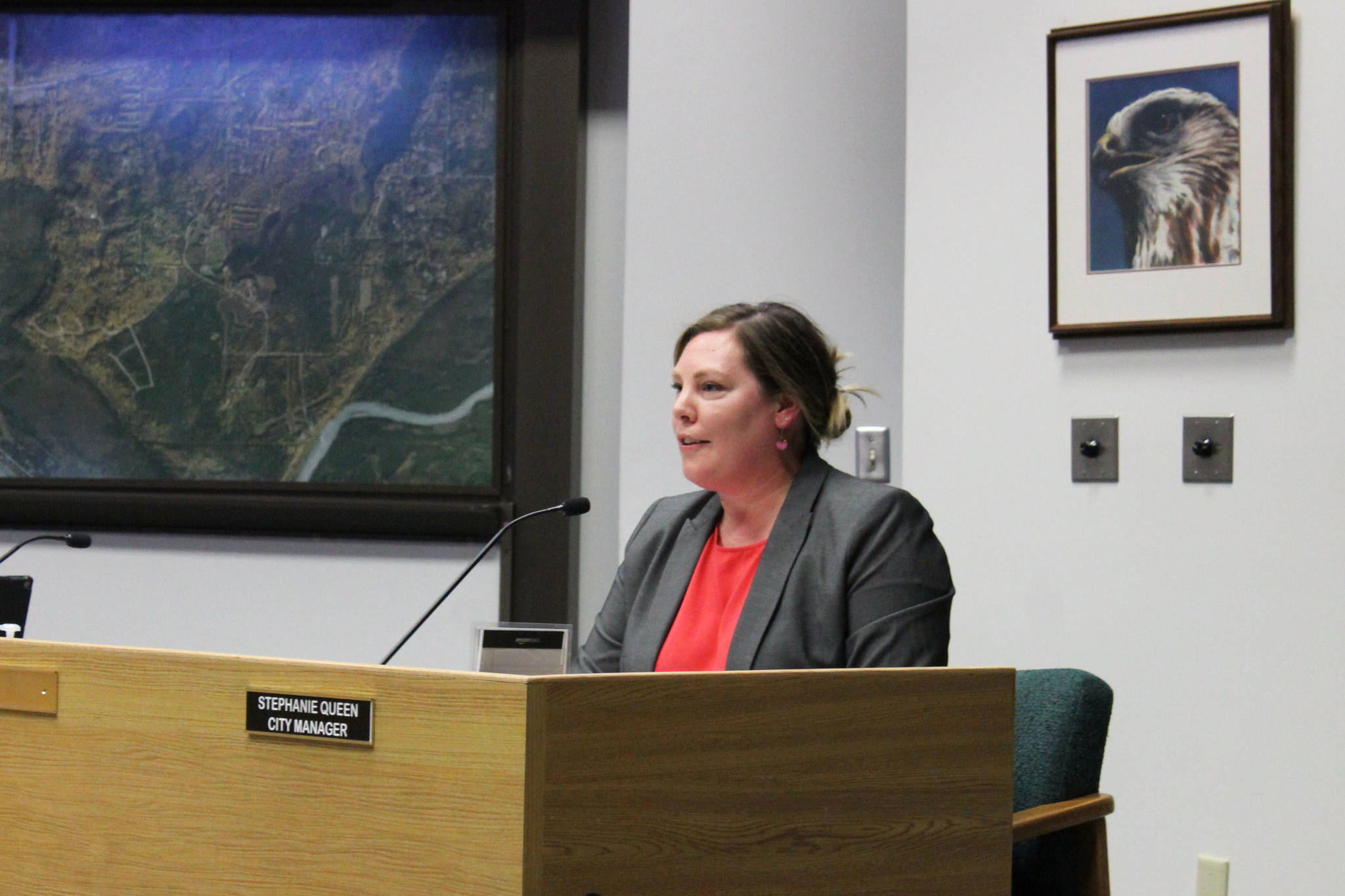As the saying goes: When one door closes, another door opens. That’s the case for the City of Soldotna, where city administrators are working to close out their federal CARES Act funding while concurrently planning for the receipt of federal ARPA funding.
The American Rescue Plan Act, or ARPA, is a $1.9 trillion economic stimulus package signed into law by President Joe Biden in March that, among other things, includes $350 billion in funding for state and local governments in response to the COVID-19 pandemic.
ARPA funds are in addition to money states and municipalities received through the federal Coronavirus Aid, Relief and Economic Security Act, a $2.2 trillion economic stimulus bill that former President Donald Trump signed into law in March of last year.
Through the CARES Act, the City of Soldotna received about $10 million, including $7.38 million from the state and about $2.56 million from the Kenai Peninsula Borough. To date, the city has spent about 46% on grants for Soldotna businesses and economic recovery, 23% on nonprofit grants and community partnerships, 13% on personnel and administrative costs, 10% on city projects for COVID mitigation and response and 5% on direct financial relief to residents.
As of Wednesday, the city had about $240,000 left, which Soldotna City Manager recommended using to pay for eligible payroll costs from FY21.
“We had more than $2 million — almost $2.2 million — of payroll expenses in this current fiscal year that could have been billed to the grant had we prioritized that,” Queen told the Soldotna City Council during their Wednesday night meeting. “Instead, the council prioritized — I think correctly so — the different grant programs, getting those funds out to the community.”
Soldotna Vice Mayor Lisa Parker said Wednesday that the city’s record of CARES Act expenditures reflects what the city prioritized during the COVID-19 pandemic: their residents.
“That 75% of the monies have gone to the nonprofits, businesses and residents here in the town I think is an outstanding reflection of our community and that we wanted this money to go and be put back into the community and to help provide relief to businesses and individuals,” Parker said. “You guys did a great job.”
The council gave Queen the green light to use Soldotna’s remaining CARES Act dollars for eligible payroll expenditures, while also unanimously approving a laydown resolution that authorizes her to accept ARPA funds, which will be distributed to the city by the state.
Queen wrote in a June 16 memo that ARPA provides federal funding to Alaska boroughs and entitlement cities like Anchorage directly, while funding for Alaska’s non-entitlement cities and census areas will be distributed by the state based on a per capita formula. Those allocations to municipalities are in addition to grant programs similarly funded by ARPA that local governments can apply to separately.
“[The laydown resolution] was important because it’s a pretty quick timeline,” Queen said during Wednesday’s meeting.
The State of Alaska has 30 days to distribute funds to non-entitlement cities and census areas, which then have 30 days to accept those funds. While final dollar amounts are not official, Queen said Soldotna is expected to receive about $1.14 million in ARPA funds, which is consistent with estimates from the state and from the Alaska Municipal League.
Queen also wrote in a memo to the council that the city will receive ARPA funds in two “tranches” to be distributed in 2021 and in 2022. Though similar to federal financial dollars distributed under the CARES Act, ARPA funds can be spent through the end of 2024 and do not have as many limitations on what they can be spent on.
Something ARPA funds can be used for that CARES Act funds could not, for example, is the recovery of lost revenue for municipalities. The U.S. Treasury Department developed a formula for calculating revenue loss that, when applied to the city by Soldotna Finance Director Melanie Imholte, shows that all of Soldotna’s ARPA funds could be used for that purpose.
“This could have the effect of reducing the City’s planned expenses … or by funding new projects or expenditures that had not been previously identified for specific funding,” Queen wrote.
The U.S. Treasury Department has said that ARPA municipal funds are meant to support COVID mitigation and revenue recovery, among other things, and can be used for public health expenditures, investing in water, sewer and broadband infrastructure and for premium pay for essential workers, according to Queen’s memo.
The council’s approval of Queen’s laydown resolution will allow her to enter into ARPA grant agreement paperwork with the state when those funds become available.
Wednesday’s full council meeting can be viewed on the city’s website at soldotna.org.
Reach reporter Ashlyn O’Hara at ashlyn.ohara@peninsulaclarion.com.

